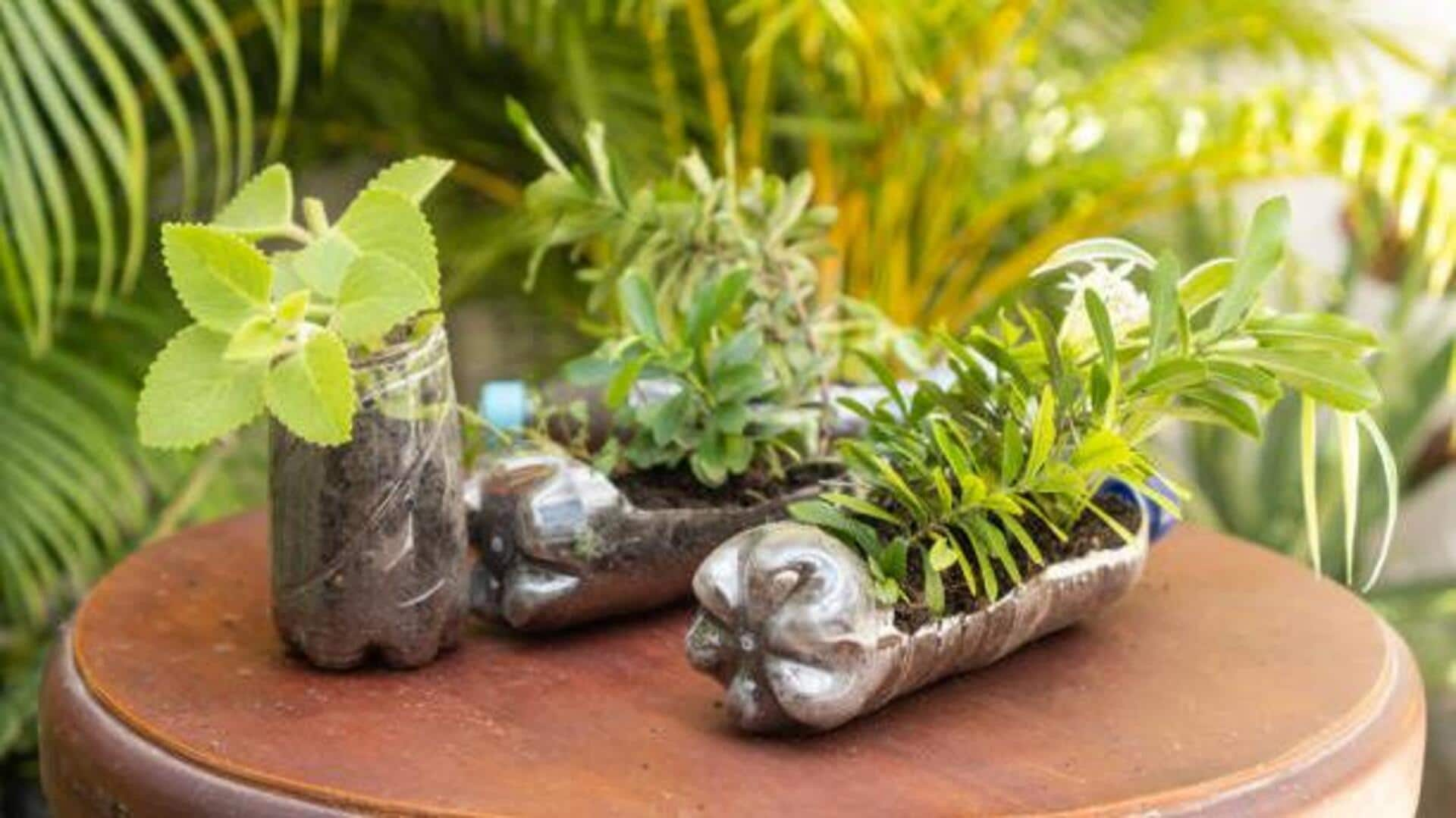
How to recycle kitchen waste
What's the story
African kitchens are often filled with waste, but they can be recycled into useful household items. This not only helps in reducing waste but also promotes sustainability and creativity. By recycling kitchen waste, you can create functional and decorative items that serve a purpose in the home. Here are some practical ways to turn everyday kitchen scraps into valuable resources.
Glass jars
Transforming glass jars into storage solutions
Glass jars from pickles or sauces can be repurposed as storage containers for spices, grains, or even small household items. After cleaning them thoroughly, these jars provide an airtight seal ideal for preserving food items. Labeling the jars adds a personal touch and makes it easier to identify contents quickly. This simple recycling method helps reduce plastic use while organizing your kitchen efficiently.
Plastic bottles
Creating planters from plastic bottles
Plastic bottles make for excellent planters for small herbs or flowers. Just cut the bottle in half, make drainage holes at the bottom, and fill it with soil. Hang or place them on windowsills to grow your favorite plants without spending a dime on pots. This not only minimizes plastic waste but also beautifies your home with greenery.
Paper mache
Crafting paper mache bowls from scrap paper
Old newspapers or scrap paper can be used to make paper mache bowls. Tear the paper into strips and mix it with glue or starch to make a paste. Mold the mixture over a balloon or bowl shape until dry, and you have a lightweight bowl for holding keys or other small items around the house.
Banana peels
Using banana peels as natural fertilizer
Banana peels are rich in potassium and other nutrients, making them excellent natural fertilizers for plants. Instead of throwing them away, chop them up and bury them in the soil of your garden or potted plants. They decompose over time, releasing essential nutrients that promote plant growth without the need for chemical fertilizers.
Coffee grounds
Turning coffee grounds into deodorizer bags
Used coffee grounds also work as natural deodorizers, thanks to their absorbent properties. Simply dry out the grounds and place them in small cloth bags or containers with holes punched in them. Place these bags in areas where odors tend to linger, like refrigerators or shoe cabinets, to neutralize unwanted smells effectively.